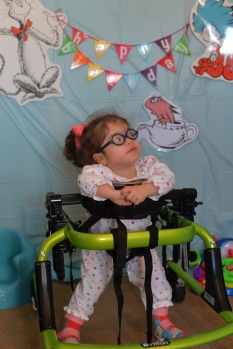 When Taylor Gurganus went to school to become a math teacher, she participated in one of NC’s student loan forgiveness programs. As long as she agreed to teach in a qualifying school, her student loans would be forgiven or cancelled by the US Department of Education. She began to teach in a qualifying school, her student loans would be forgiven or cancelled by the US Department of Education. She began teaching in the Gates County public school system, a job which she absolutely loved.
When Taylor Gurganus went to school to become a math teacher, she participated in one of NC’s student loan forgiveness programs. As long as she agreed to teach in a qualifying school, her student loans would be forgiven or cancelled by the US Department of Education. She began to teach in a qualifying school, her student loans would be forgiven or cancelled by the US Department of Education. She began teaching in the Gates County public school system, a job which she absolutely loved.
In January 2014, Chad and Taylor Gurganus were eagerly awaiting their first child. When Taylor arrived at the hospital for a Caesarean section at 35 weeks, parents and doctors all expected a healthy baby. Taylor instantly knew something was wrong when Talynn was born. Her four-pound baby daughter was black and blue and wasn’t breathing. She was immediately rushed out of the birthing room and five hours later was transported to a Neonatal Intensive Care Unit (NICU) one hour away. She remained in the NICU for 24 days, undergoing a series of tests, none of which brought them any closer to a diagnosis. In fact, Talynn wouldn’t officially be diagnosed until 13 days before her first birthday. .
While their private insurance covered some of the costs of Talynn’s hospital stay, they needed to pay the rest out of pocket. In order to keep her job teaching while caring for Talynn, Taylor videotaped her lessons in the hospital and gave them to her substitute to show the students.
Taylor was able to take one year’s leave of absence to care for Talynn; her student loan forgiveness was put on hold and began to gather interest. She and her husband quickly began to realize that they were facing an incredibly difficult choice. They couldn’t afford the private nursing care necessary for Talynn’s care during the work day, but if Taylor quit her job they would be financially strapped and would need to pay back her student loans.
At almost a year old, Talynn was the 43rd patient in the world to be diagnosed with Bohring-Opitz Syndrome, an extremely rare congenital disorder. Children’ with BOS can exhibit clinical, craniofacial, ophthalmic, neurological, urological, hair, skin, brain, and skeletal symptoms. Taylor quit her job to care for Talynn and began to explore what types of supports she could access.
She applied for several Medicaid waivers available in North Carolina, including the  Innovations Waiver and the Community Alternatives Program for Children (CAP/C). During the process, Chad was working seven days a week, her student loans were going into collections, and they still weren’t income eligible for disability.
Innovations Waiver and the Community Alternatives Program for Children (CAP/C). During the process, Chad was working seven days a week, her student loans were going into collections, and they still weren’t income eligible for disability.
Unfortunately, the Innovations Waiver had a seven year waiting list, but eventually, Talynn qualified for the CAP/C waiver. CAP/C approves in-home skilled nursing care, as well as adaptive equipment and other medically necessary services – none of which is covered by their private insurance plan. These supports have allowed Taylor to go back to the classroom. Teaching is Taylor’s way of contributing not only to Talynn’s future but also her community’s future. Chad’s work schedule now allows him to spend time with and enjoy his little girl.
Families like the Gurganus’ would be significantly impacted if federal Medicaid funds were capped. Under a capped system, states would have a maximum amount to spend on Medicaid recipients like Talynn. The maximum amount would quickly be reached while care and services would still be needed; the state of North Carolina would need to find the funds in the state budget to cover these costs or they would fall back on the Gurganus family. Taylor would lose her job and their family would go further into debt. Most importantly, Talynn wouldn’t have access to the lifesaving care she currently receives through the Medicaid program.
Taylor Gurganus | tngurganus@gmail.com | http://www.talynnsjourney.com | @talynnsjourney

Here are just a few reasons the AHCA will threaten Talynn’s life:
- Medicaid Per Capita Caps would result in rationing the care of medically fragile kids
- Special Programs that provide assistance families and children like mine would eventually be cut
- My child would be at greater risk for institutionalization and death because of service cuts
- Parents would be faced with horrible decision to institutionalize which will cost states more money than keeping their child at home
@FragileKidsNC
advocatesforfragilekidsnc@gmail.com
Special thanks to Sarah Vidrine at NC Child for helping compose this blog post.

